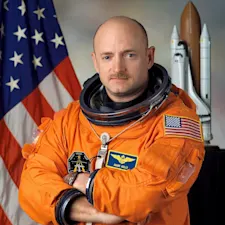
RFK Jr. Sparks Outrage After Dipping Kids in Fecal Creek
RFK Jr. during his hearing to be Secretary of Health and Human Services, January 2025. Photo courtesy of U.S. Senate Senate Committee on Health, Education, Labor and Pensions. Public domain.
On Mother's Day, while most grandparents were toasting at brunch or passing around flower bouquets, Health and Human Services Secretary (HHS) Robert F. Kennedy Jr. took a different approach — one that's making public health experts squirm and Twitter erupt. Shirtless and smiling, Kennedy shared photos of himself and his grandchildren wading and swimming in Rock Creek, a scenic but bacteria-laden waterway winding through Washington, D.C. What looked like a wholesome family outing has ignited a national controversy, not for its sweetness, but for its proximity to raw sewage.
Why This Moment Matters
Rock Creek is no secret swimming hole. It's a well-documented hazard zone, according to the National Park Service, due to alarming levels of bacteria and pathogens linked to sewage overflows and urban runoff. For over 50 years, swimming or even wading in D.C.'s waterways has been officially banned, according to ABC News.
Yet there was the 71-year-old health secretary, taking a full-body plunge, with children in tow — and posting it online for all to see.
Robert F. Kennedy Jr. is not just any grandparent. As head of the HHS, he's the top public health official in the country. His agency is responsible for, among other things, managing disease control, setting water safety standards, and leading pandemic response planning. So when he voluntarily immersed himself — and his grandchildren — in water contaminated with fecal bacteria, many health experts were left speechless.
Microbiologist Dr. Bill Sullivan called the act "aquatic Russian roulette," according to SELF, pointing out that Rock Creek can contain not just E. coli but also dangerous pathogens like giardia, cryptosporidium, norovirus, and hepatitis A. According to SELF, he also said, "When you're dealing with these fecal-contaminated waters, you might get lucky on one day, but you might not get lucky the next day, so it's just not worth the risk."
The symptoms from exposure range from stomach cramps and diarrhea to dehydration and even liver failure. Vulnerable groups like the elderly and young children — the exact demographics Kennedy included in his creek dip — are especially at risk.
The Water Doesn't Lie
D.C.'s Rock Creek has been plagued for decades by pollution tied to its centuries-old sewer infrastructure. The Environmental Protection Agency (EPA) has identified the waterway as having persistent "fecal contamination" and dangerously high bacteria counts, much of it caused by rain-triggered sewer overflows, according to ABC News.
Just this month, officials announced an emergency fix to a cracked, 200-foot section of pipe that dumps directly into the creek — a risk that Kennedy's office has not publicly acknowledged.
According to ABC News, the National Park Service clearly states on its website, "Rock Creek has high levels of bacteria and other infectious pathogens that make swimming, wading, and other contact with the water a hazard to human (and pet) health."
Kennedy's Long History of Health Controversies
This incident isn't a standalone moment of eccentric behavior. Kennedy has a long track record of controversial health views that often run counter to mainstream science. He's publicly questioned germ theory — the foundational principle behind infectious disease control — and he's known for promoting raw milk consumption and opposing vaccine mandates.
Kennedy's belief concerning health has fueled behaviors observers have found troubling and absurd. During 2024 independent presidential campaign, Kennedy revealed he had struggled with memory loss "caused by a worm that got into my brain and ate a portion of it and then died," according to U.S. News.
Additionally, Kennedy admitted that he had dumped a bear carcass in Central Park after picking up the roadkill with the original intention of eating the meat.
Critics argue that this pattern of behavior undermines his credibility as a national health leader. After all, when the person tasked with protecting public health swims in a creek the EPA labels a public health hazard — and brings children along — what message does that send?
Public Health vs. Personal Choice
To some, the Mother's Day swim was just a quirky Kennedy moment — a nostalgic gesture in nature. But for others, especially those who look to federal officials for health guidance, the optics were jarring. As Dr. Sullivan told SELF, "Even if RFK says that he and his grandkids were perfectly fine, they had a great day, nothing happened, no one got sick—that's not the point. We cannot communicate to the American public that this is a safe activity to do."
The Department of Health and Human Services has not responded to multiple requests for comment from major outlets. It remains unclear whether Kennedy was aware of the swim ban or simply chose to ignore it.
But for the millions of Americans watching from afar, this moment serves as a stark reminder that leadership by example cuts both ways. Whether you view it as a free-spirited jaunt or a public health blunder, RFK Jr.'s creek dip may leave a longer-lasting impression than any speech, policy, or press release.
References:RFK Jr. Took His Grandkids for a Dip in a Sewage-Contaminated Creek For Mother's Day | Here's What a Microbiologist Wants You to Know About RFK Jr.'s Little Creek Swim | Robert F. Kennedy Jr. Submerges in Creek With High Bacteria Levels, Including E. coli | RFK Jr. Said He Swam With His Grandkids in a Creek Known for Raw Sewage | RFK Jr. Swims in Sewage-Tainted Creek With Grandchildren Despite National Park Service's Bacteria Warning | A Look Back at the Most Bizarre Moments of the RFK Jr. Campaign























